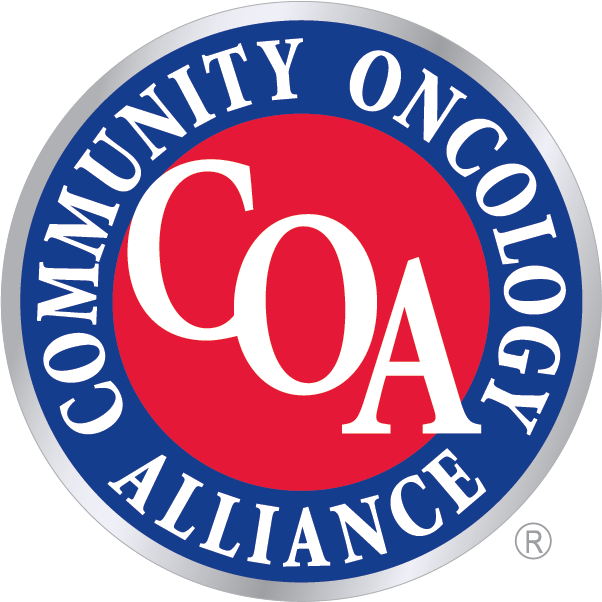Community Oncology Alliance 2019 Year in Review
From comment letters on policy proposals to meetings with legislators to the most successful Community Oncology Conference in our history, this was a big year for the Community Oncology Alliance (COA).
This 2019 Year in Review captures the major highlights from another successful year of innovating and advocating for community oncology patients, professionals, and practices.
As the voice for community oncology in Washington, COA works to advance bold proposals to transform oncology while working to preserve access to local, affordable cancer care for every American. Working together, there were almost 500 meetings with legislators and their staffs, advocating for community oncology.
Every step of the way COA members were with us, and together we made a difference. Each victory is a direct result of that dedication and inspiration.
We look forward to continuing work on your behalf in 2020.
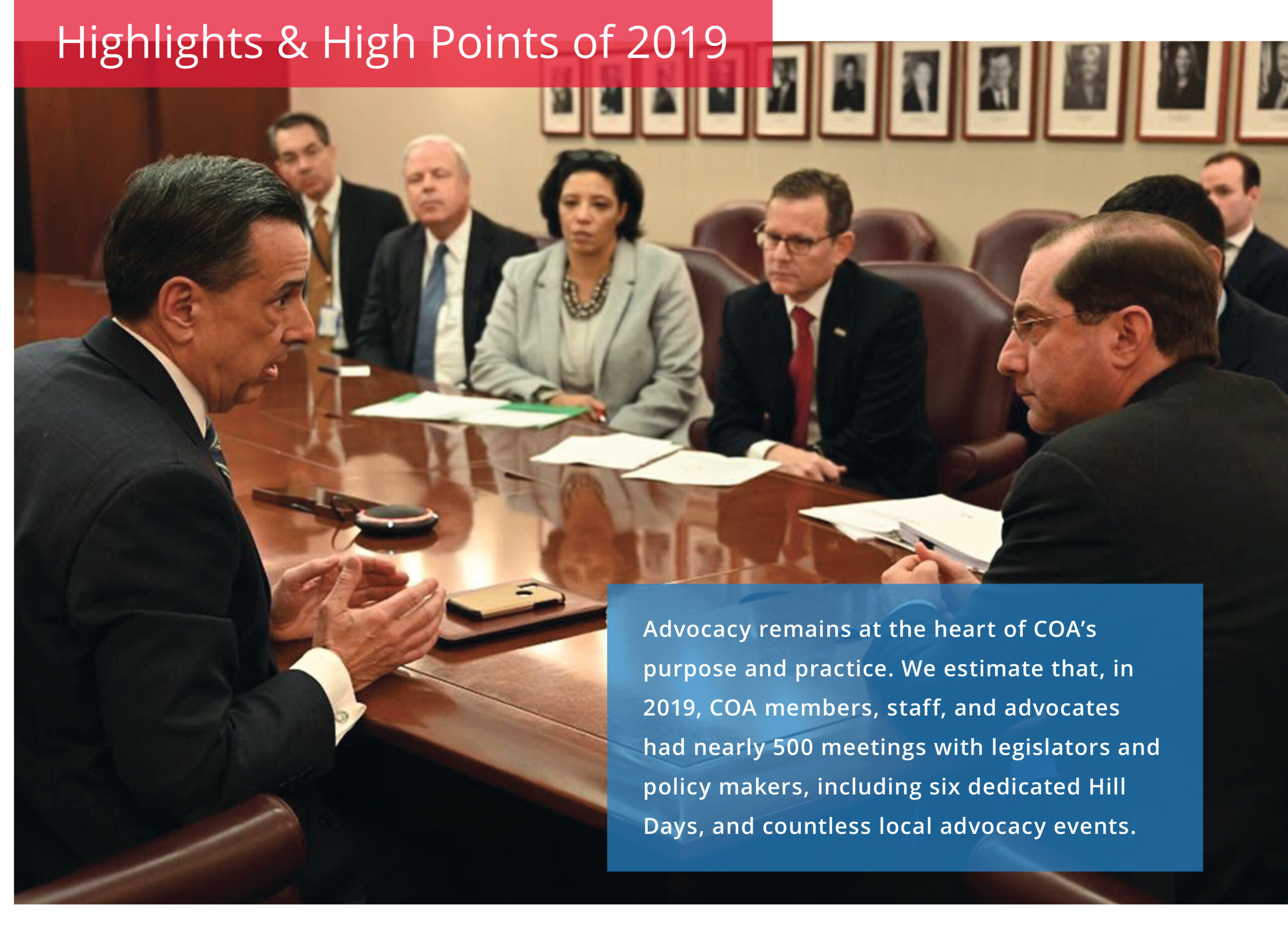
Throughout the year COA brought patients and professionals from community oncology practices to meet with policymakers in Washington and discuss important issues.
Talking Drug Pricing & Solutions with HHS Secretary Azar
The year began with a group of COA leaders and practices meeting with Health & Human Services (HHS) Secretary Alex Azar and senior staff to discuss drug prices and patient access to cancer treatment – especially new therapies – and strategies for reforming the payment system to control Medicare & seniors’ costs. It was a very positive meeting for listening and exchanging ideas, and extremely important for community oncology to have a key seat at that table. We appreciate the Secretary’s message that drug prices will be controlled and lower prices will be achieved but not at the expense of doctors and patients.
Giving Patients & Professionals a Voice in Washington
Throughout the year COA brought patients and professionals from community oncology practices to meet with policymakers in Washington to discuss important issues. Members of the COA Board and broader community traveled to Washington for five Hill Days, logging hundreds of hours of meetings.
In May, the COA Patient Advocacy Network (CPAN) took to Capitol Hill with 40 advocates from 13 practices in 14 states, including eight survivors and five caregivers. All together they had 55 meetings with Members of Congress and their staff in a single day!
COA also helped practices across the country host local “Sit In My Chair” events which bring legislators and staff into practices to experience first-hand what patients experience. By going through the impact of diagnosis, learning they have cancer, and addressing treatment and financial planning, legislators gain a better perspective for consideration when drafting legislation or setting policy.
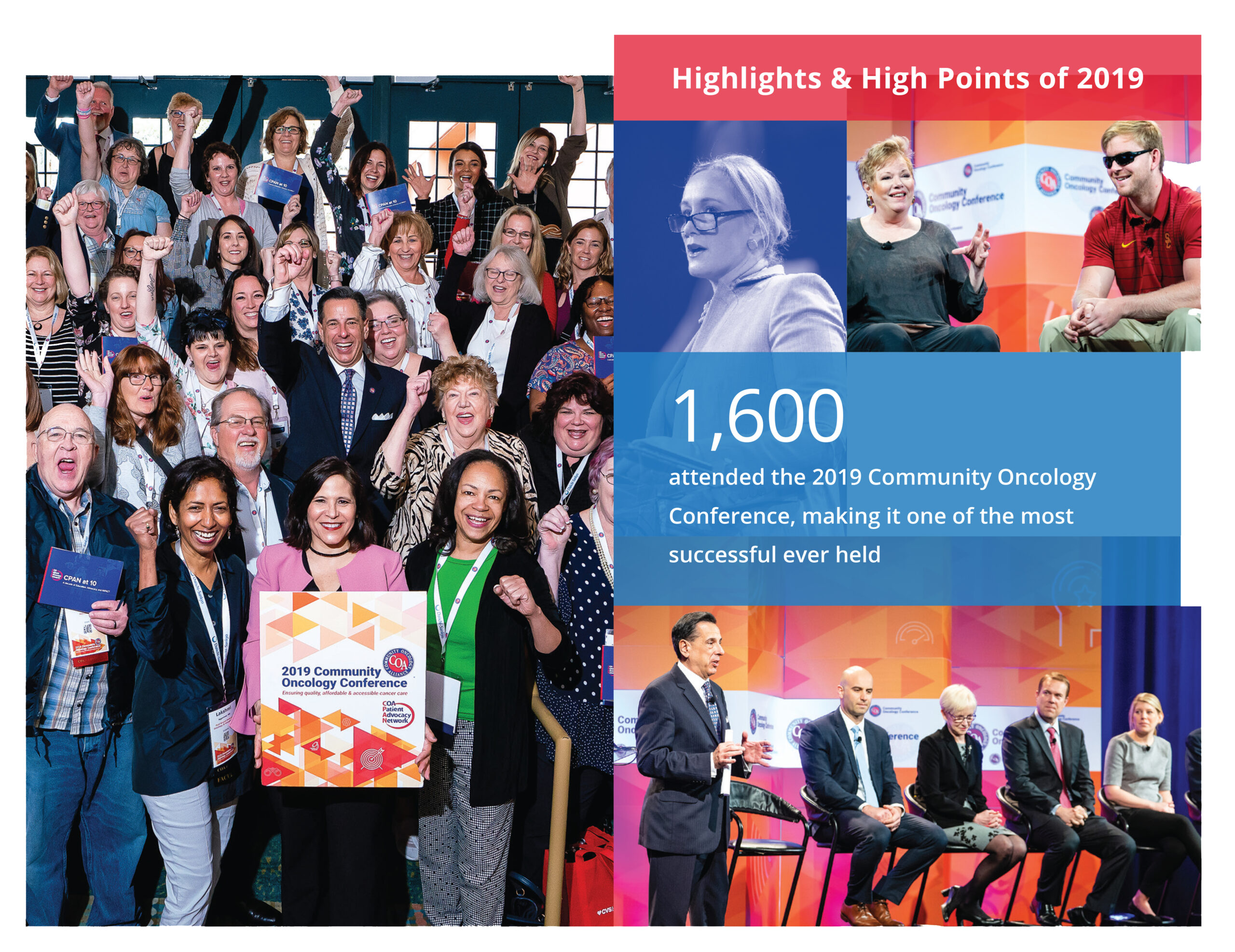
Bringing the Community Together to Learn, Network, Succeed
2019 marked the most successful Community Oncology Conference ever with a record-breaking nearly 1,600 community oncology physicians, administrators, practice staff, pharmacists, oncology nurses, patient advocates, and stakeholders. The theme was “Ensuring Quality, Affordable & Accessible Cancer Care,” and the Conference focused on empowering practices and professionals to thrive in the community oncology system of the future.
Stakeholders from across the cancer care system met for the 10th national Community Oncology Alliance Payer Exchange Summit on Oncology Payment Reform. The Summit series is a unique, gathering of more than 200 cancer stakeholders who share their efforts to advance oncology payment reform, increase value, and improve the patient experience in the U.S. cancer care system. All attendees are, or have been, involved in payment and delivery reform projects and together represent nearly every major oncology-focused project in the country
A Bold Reform Proposal: COA Releases the Oncology Care Model 2.0
This year COA released an innovative and ambitious reform model to improve quality, reduce costs, and provide important additional cancer care services to patients. Known as the “OCM 2.0,” it is a detailed alternative payment model that includes bold proposals for value-based drug contracts that, if implemented, would provide high-quality, coordinated oncology care at the same or lower cost. COA continues to refine the OCM 2.0 as a viable universal model not just for Medicare fee-for-service, but for all payers, including Medicare Advantage, insurers, and employers.
Position Statements
This year COA developed and updated seven formal position statements on the key issues affecting patient access to local, affordable care or the maintenance of the viability of the community cancer care system where more than half of all Americans with cancer receive their care. Reviewed and approved by the Board of Directors, the statements provide background, history, and detail on COA’s formal position on key issues affecting cancer care. Many of these issues are part of currently proposed legislation or under policy consideration by the Centers for Medicare & Medicaid (CMS), Congress, state governments, and others.
- 340B Drug Pricing Program
- Biosimilars
- “Fail-First” Step Therapy
- In-Office Dispensing
- Oral Parity
- Site Parity
- White & Brown Bagging
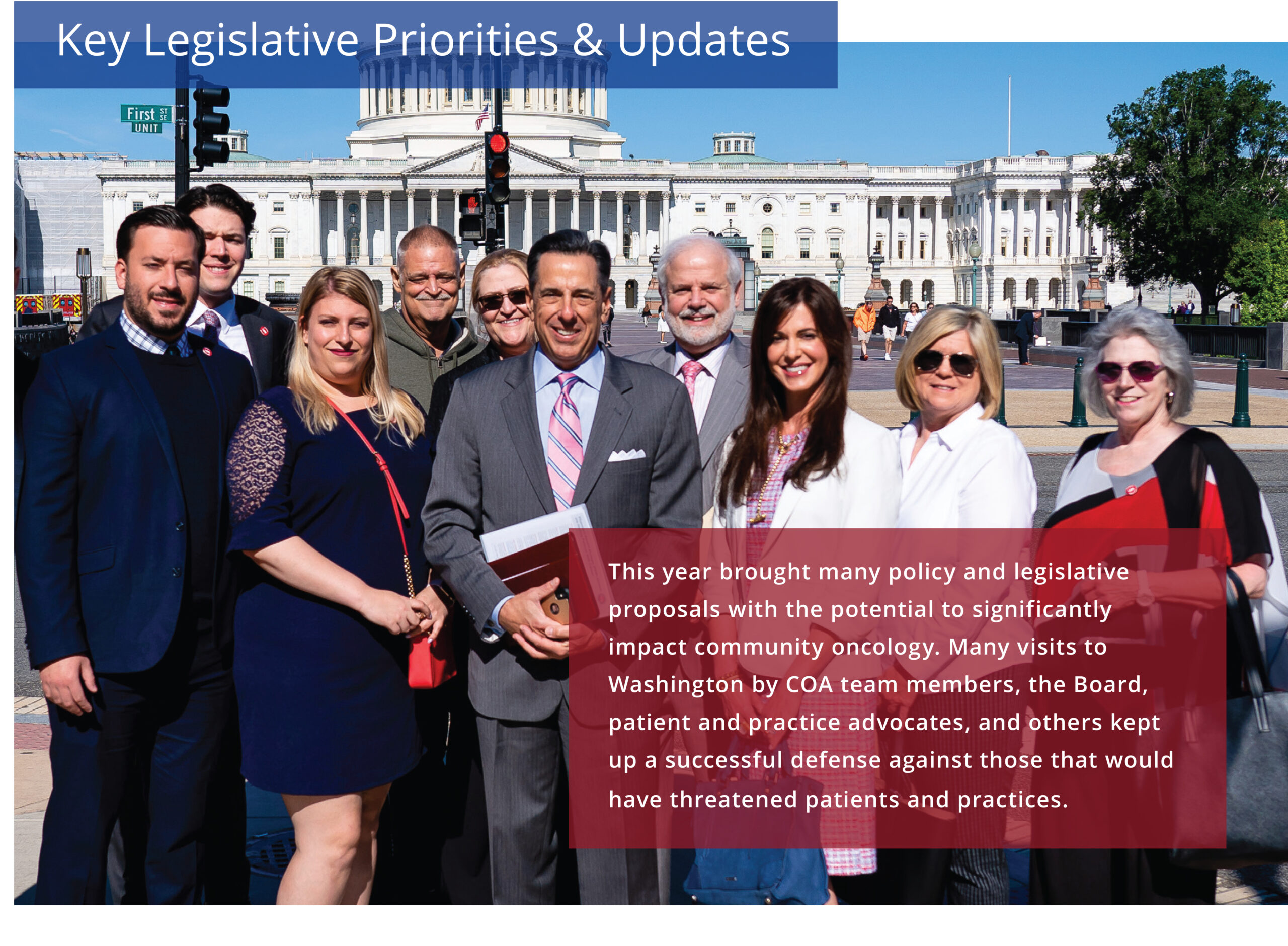
Of note in 2019 were the numerous proposals to majorly change or lower the ASP reimbursement. COA has worked overtime to ensure policymakers knew our concerns.
The Year in Drug Pricing Legislation
There were several bills of note addressing drug pricing in 2019 that passed or, while still in Congress, have the potential to pass. Many stand-alone bills regarding drug pricing, drug waste, Medicaid reform, and surprise billings for emergency out-of-network services have been introduced on both sides of the aisle. COA kept a close eye on these bills to help influence their details and keep an eye on dangerous proposals.
Amongst the legislation for modifying drug pricing and Part B reimbursement, there were several notable bills that are still active. H.R. 3, the Lower Drug Costs Now Act of 2019, introduced in the House by Speaker Nancy Pelosi, includes inflationary caps on drug price increases, steep manufacturer penalties, some drug indexing to international prices, and modifications to Medicare Part D to limit out of pocket expenses for patients. This significantly shifts the catastrophic coverage to plan sponsors and manufacturers and away from Medicare.
S.2543, Prescription Drug Pricing Reduction Act of 2019, introduced by Senator Chuck Grassley in the Senate Finance Committee, includes alterations to Part B, Part D, Medicaid, and rebate programs; greater drug pricing transparency; and sets inflationary caps on drug manufacturer price increases. It also mandates greater transparency in both the PBM discount and rebate programs, an issue COA has worked hard to see included.
Finally, H.R. 1781, Payment Commission Data Act of 2019, amends the Social Security Act to allow MedPAC, Medicaid, and CHIP access to drug payment information, especially drug discounts to PBMs. After COA’s work in 2019, this bill passed the House and was referred to the Senate.
The Oncology Care First Model (OCF)
Late in 2019, CMS announced a massive new oncology reform model known as the “Oncology Care First Model” (OCF). New and distinct from OCM, the OCF is meant to build on stakeholder feedback and lessons learned from the ongoing OCM 1.0. OCF will be a voluntary, five-year national oncology model slated to begin in January 2021. Under pressure to move forward with the model, CMS gave less than three weeks for feedback on the initial OCF proposal. COA responded that a major proposal like the OCF requires thoughtful consideration which would have been difficult to do in the short time before comments were due. Thanks to COA’s lead and advocacy, CMS extended the feedback period. COA is working with CMS to ensure full input by community oncology.
One area of concern with the OCF is how it might address shortcomings with the OCM that COA has identified and communicated to the Center for Medicare and Medicaid Innovation (CMMI) staff on numerous occasions. In fact, in late May, COA submitted a detailed letter to former CMMI Director Adam Boehler outlining major challenges that need to be addressed in the OCM in order to make it a viable oncology payment reform model. COA has been heard as the informal requests for information from CMMI suggest fixes for some of the issues that COA had identified may be in the works.
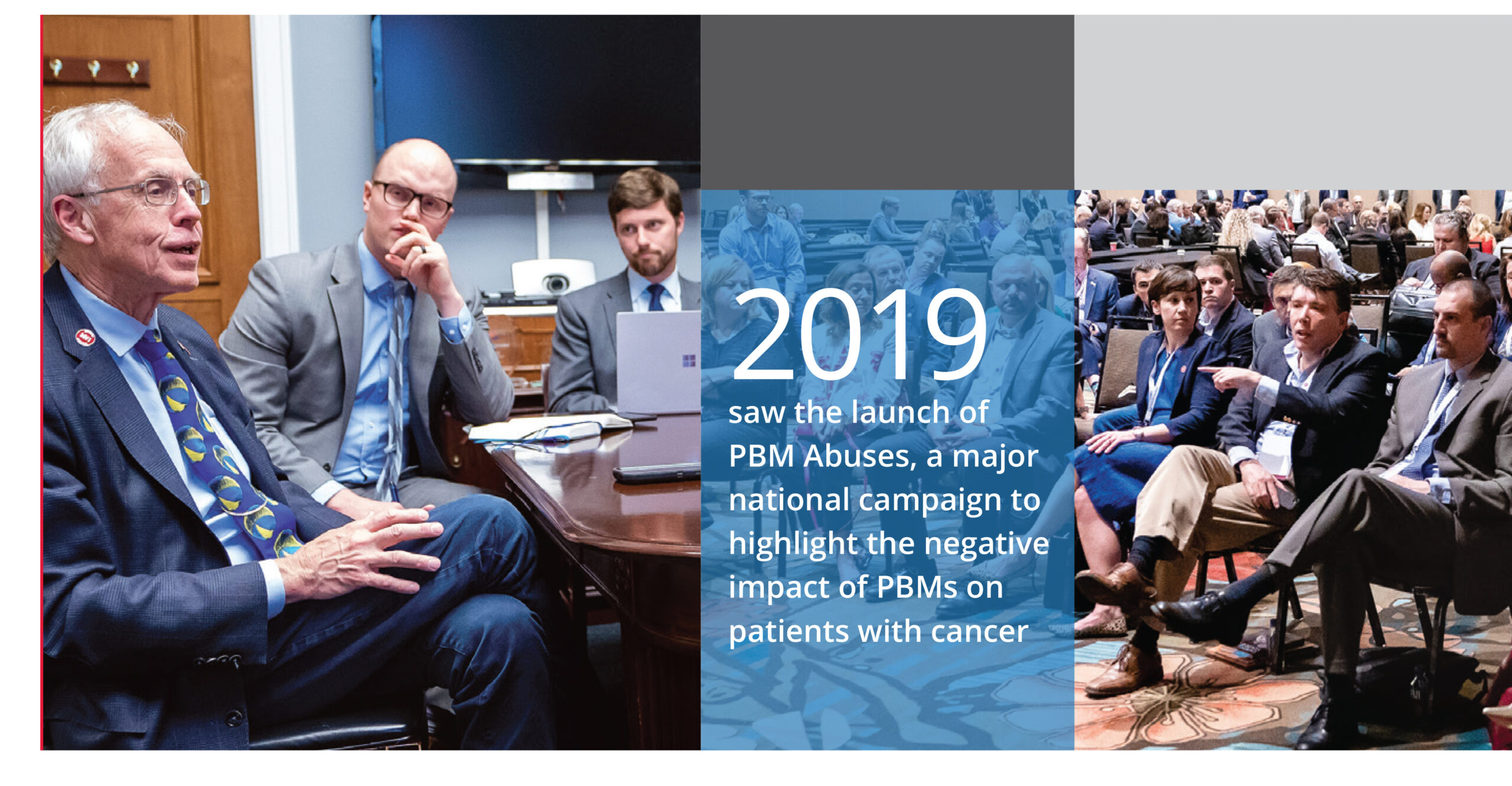
Addressing Pharmacy Benefit Manager (PBM) Abuses
In 2019 COA launched PBM Abuses, a major national campaign to highlight the negative impact of pharmacy benefit managers (PBMs) on patients with cancer. The campaign includes an interactive patient stories website at www.PBMAbuses.org, video education, storytelling online and across the Community Oncology TV network, a strong social and digital media presence, and COA’s national grassroots networks. The campaign goal is to convince lawmakers to take concrete steps to stop PBM abuses that are hurting patients with cancer.
At the same time COA worked tirelessly with Congressional offices on both sides of the aisle to advance important bills addressing PBM abuses that hurt patients, improving the pre-certification process, and fixing the broken 340B Program. There are two PBM bills currently under consideration in the House. The first, H.R. 3107, Improving Seniors’ Timely Access to Care Act of 2019, establishes pre-certification for Medicare Advantage plans. The second, H.R. 2115, Public Disclosure of Drug Discounts and Real-Time Beneficiary Drug Cost Act, amends the Social Security Act to provide greater transparency for discounts provided by manufacturers and has bi-partisan support.
Reforming the Broken 340B Drug Pricing Program
COA was among the first to argue that 340B is a good program gone wrong. Beginning in 2013, COA sounded the alarm as 340B began to morph from a program to support hospitals treating low income and indigent patients to the unintended use of 340B to acquire oncology practices as a hospital profit source. Throughout 2019 COA remained a leading advocate against the ongoing consolidation of community oncology into 340B hospitals which forces patients to pay for higher-priced, hospital-based care.
After years of COA leading the call for 340B reform, CMS continued with its move to slash payments to the 340B drug program, despite court rulings against such actions. COA strongly supports these cuts and believes the benefit of the 340B program should follow the patient who needs the drugs, not the hospitals’ bottom lines. In 2019 we worked with both House and Senate offices on bills that would do this and hope to see legislation introduced in 2020.
COA Members Working Together
Biosimilars Committee: The biosimilars market is in its infancy so to best represent community oncology’s interests, the COA Biosimilars Committee was formed. The Committee monitors the biosimilar market and re-asserts the COA position that encourages innovation and the continual development of a vibrant biosimilars market.
CAR-T Task Force: The CAR-T Task Force members have been specifically chosen because of their current and personal expertise with CAR-T therapy. The Task Force monitors for any federal or state legislation or policy that might limit community oncology participation or ability to provide CAR-T therapy to their patients.
Committee on Oncology Payment Reform: The Committee on Oncology Payment Reform is made up of physician leaders and practice administrators with deep experience in payment reform efforts. The Payer Exchange Summit attendance is capped at 250 to allow for a true exchange of ideas and is at capacity each year. Proposals first discussed in earlier Summit meetings have begun rolling out to practices across the nation.
Conference Committee: The Conference Committee provides direction on the annual Community Oncology Conference theme, content for the agenda, and selects the world-class faculty of experts and speakers. The 2020 Community Oncology Conference theme is “Focus on the Future of Cancer Care”, and it will take place April 23-24, 2020 in Orlando, Florida. Registration is now open!
Government Affairs & Policy Committee: The Government Affairs and Policy (GAP) Committee guides official positions and comments regarding public policy. Members are actively involved in COA government affairs work and are in Washington, DC advocating for community oncology. In 2019, the Committee members spent almost 200 hours in meetings with policymakers to discuss community oncology issues and legislation.
COA Networks & Initiatives
The Resources You Need to Succeed
COA membership provides access to peer-to-peer networking. Member specialty groups for pharmacists, advanced practice providers, administrators, and patient navigators uniquely support every member of the practice team. As a COA member practice every member of your staff has access to these resources not available elsewhere.
COA Patient Advocacy Network/CPAN
 CPAN saw record growth this year with new chapters in Connecticut, Florida, and Texas for a total of 27 chapters. Over 60 educational/advocacy events were held across the U.S. In 2019 CPAN chapters were leaders of COA’s “Sit In My Chair,” an education program that puts U.S. Senators and Representatives in the “patient chair” to experience the multitude of issues – medical, financial and emotional – that come with a cancer diagnosis. Bringing a CPAN chapter to your practice taps into the advocacy energy of your patients and their families.
CPAN saw record growth this year with new chapters in Connecticut, Florida, and Texas for a total of 27 chapters. Over 60 educational/advocacy events were held across the U.S. In 2019 CPAN chapters were leaders of COA’s “Sit In My Chair,” an education program that puts U.S. Senators and Representatives in the “patient chair” to experience the multitude of issues – medical, financial and emotional – that come with a cancer diagnosis. Bringing a CPAN chapter to your practice taps into the advocacy energy of your patients and their families.
Community Oncology Pharmacy Association/COPA
 COPA members are key in the fight against PBM abuses. As the resource for the stories in the Patient Horror Stories series, COPA members know firsthand how devastating PBM abuses can be for patients with cancer. This year the powerful benchmarking tool for practices, COAnalyzer, became a key tool for pharmacists to compare their performance against themselves and other practices.
COPA members are key in the fight against PBM abuses. As the resource for the stories in the Patient Horror Stories series, COPA members know firsthand how devastating PBM abuses can be for patients with cancer. This year the powerful benchmarking tool for practices, COAnalyzer, became a key tool for pharmacists to compare their performance against themselves and other practices.
COA Administrators’ Network/CAN
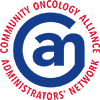 The 400 CAN members participate in monthly peer-to-peer calls that offer an opportunity to discuss and resolve operational issues and to keep current on the most important legislation affecting practices and patients. The resulting problem solving translates to improved practice operations and patient advantages through a better patient experience during cancer care. Every administrator can benefit from this regular exchange of ideas.
The 400 CAN members participate in monthly peer-to-peer calls that offer an opportunity to discuss and resolve operational issues and to keep current on the most important legislation affecting practices and patients. The resulting problem solving translates to improved practice operations and patient advantages through a better patient experience during cancer care. Every administrator can benefit from this regular exchange of ideas.
COA Advanced Practice Provider Network/CAPP
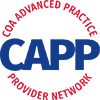 From patient care to practice administration, advanced practice providers are integral to the successful delivery of cancer. CAPP keeps oncology advanced practice providers up to date on the latest news and developments, such as patient support strategies; health reform initiatives; the newest drugs and therapies; and strengthening advanced provider leadership roles in practices.
From patient care to practice administration, advanced practice providers are integral to the successful delivery of cancer. CAPP keeps oncology advanced practice providers up to date on the latest news and developments, such as patient support strategies; health reform initiatives; the newest drugs and therapies; and strengthening advanced provider leadership roles in practices.
Community Oncology Patient Navigator Network/COPNN
 COPNN provides navigators with best practices to guide cancer patients through the health care system. This includes involvement from screening, diagnosis, and treatment through follow-up including financial and alternative care options. COPNN members assist patients in communicating with their health care providers so they have the information they need to make informed decisions about their health care.
COPNN provides navigators with best practices to guide cancer patients through the health care system. This includes involvement from screening, diagnosis, and treatment through follow-up including financial and alternative care options. COPNN members assist patients in communicating with their health care providers so they have the information they need to make informed decisions about their health care.
COA Fellows Initiative
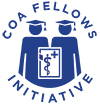 As fellows complete their three-year oncology and hematology fellowship, they have a choice of how and where they will practice. Now in its third year, the COA Fellows Initiative presents practice options and discusses the many factors that should be considered when making those decisions. COA member practices may host a presentation and meet with the fellows to discuss local opportunities.
As fellows complete their three-year oncology and hematology fellowship, they have a choice of how and where they will practice. Now in its third year, the COA Fellows Initiative presents practice options and discusses the many factors that should be considered when making those decisions. COA member practices may host a presentation and meet with the fellows to discuss local opportunities.

A Busy Year
2019 Comment Letters, Statements, and Press Releases
COA has become a recognized and respected force in cancer care policy. Our comments are sought after and serve as guidance for others as they craft their own opinions. Our comment letters, statements, and press releases released in 2019 are a demonstration of the power of COA as we continually advocate for community oncology.
January 2: Formal Comments on Medicare International Pricing Proposal
February 1: COA Applauds HHS for Taking Strong Step Towards Ending Secretive Rebate System
February 27: COA Patient Advocacy Network Appoints Medical Co-Chairs
March 6: COA Statement on the Departure of FDA Commissioner Scott Gottlieb, MD
March 15: COA Comments: CMS CAR-T Cell Therapy Proposed Coverage Determination
July 11: Statement on Proposed Radiation Oncology Alternative Payment Model
July 12: Killing Medicare Part D Rebate Rule a Huge Gift to Pharmacy Benefit Managers (PBMs)
July 24: Including Patient Financial Assistance in ASP a Dangerous Proposal
July 30: Statement on Proposed Physician & Hospital Payment Rules for 2020
August 9: COA Applauds CMS for Making CAR T-Cell Therapy Available to All Medicare Patients
September 17: COA Formal Comments to CMS on Proposed Radiation Oncology Alternative Payment Model (RO Model)
September 18: Community Oncology Alliance Releases Six New Position Statements
October 28: Community Oncology Alliance Payer Exchange Summit Explores Strategies for Improving Value in Cancer Care
October 30: Community Oncology Alliance Chief Medical Officer Dr. Frederick Schnell Appointed to Commission on Cancer
November 4: COA Commends CMS for Site Parity and 340B Reforms in 2020 OPPS Final Rule
November 5: Community Needs More Time to Assess and Comment on CMMI’s Proposed Oncology Care First Model
December 18: Community Oncology Alliance Elects Officers and New Board Members for 2020
Community Oncology Alliance 2019 Year in Review
From comment letters on policy proposals to meetings with legislators to the most successful Community Oncology Conference in our history, this was a big year for the Community Oncology Alliance (COA).
This 2019 Year in Review captures the major highlights from another successful year of innovating and advocating for community oncology patients, professionals, and practices.
As the voice for community oncology in Washington, COA works to advance bold proposals to transform oncology while working to preserve access to local, affordable cancer care for every American. Working together, there were almost 500 meetings with legislators and their staffs, advocating for community oncology.
Every step of the way COA members were with us, and together we made a difference. Each victory is a direct result of that dedication and inspiration.
We look forward to continuing work on your behalf in 2020.

Throughout the year COA brought patients and professionals from community oncology practices to meet with policymakers in Washington and discuss important issues.
Talking Drug Pricing & Solutions with HHS Secretary Azar
The year began with a group of COA leaders and practices meeting with Health & Human Services (HHS) Secretary Alex Azar and senior staff to discuss drug prices and patient access to cancer treatment – especially new therapies – and strategies for reforming the payment system to control Medicare & seniors’ costs. It was a very positive meeting for listening and exchanging ideas, and extremely important for community oncology to have a key seat at that table. We appreciate the Secretary’s message that drug prices will be controlled and lower prices will be achieved but not at the expense of doctors and patients.
Giving Patients & Professionals a Voice in Washington
Throughout the year COA brought patients and professionals from community oncology practices to meet with policymakers in Washington to discuss important issues. Members of the COA Board and broader community traveled to Washington for five Hill Days, logging hundreds of hours of meetings.
In May, the COA Patient Advocacy Network (CPAN) took to Capitol Hill with 40 advocates from 13 practices in 14 states, including eight survivors and five caregivers. All together they had 55 meetings with Members of Congress and their staff in a single day!
COA also helped practices across the country host local “Sit In My Chair” events which bring legislators and staff into practices to experience first-hand what patients experience. By going through the impact of diagnosis, learning they have cancer, and addressing treatment and financial planning, legislators gain a better perspective for consideration when drafting legislation or setting policy.

Bringing the Community Together to Learn, Network, Succeed
2019 marked the most successful Community Oncology Conference ever with a record-breaking nearly 1,600 community oncology physicians, administrators, practice staff, pharmacists, oncology nurses, patient advocates, and stakeholders. The theme was “Ensuring Quality, Affordable & Accessible Cancer Care,” and the Conference focused on empowering practices and professionals to thrive in the community oncology system of the future.
Stakeholders from across the cancer care system met for the 10th national Community Oncology Alliance Payer Exchange Summit on Oncology Payment Reform. The Summit series is a unique, gathering of more than 200 cancer stakeholders who share their efforts to advance oncology payment reform, increase value, and improve the patient experience in the U.S. cancer care system. All attendees are, or have been, involved in payment and delivery reform projects and together represent nearly every major oncology-focused project in the country
A Bold Reform Proposal: COA Releases the Oncology Care Model 2.0
This year COA released an innovative and ambitious reform model to improve quality, reduce costs, and provide important additional cancer care services to patients. Known as the “OCM 2.0,” it is a detailed alternative payment model that includes bold proposals for value-based drug contracts that, if implemented, would provide high-quality, coordinated oncology care at the same or lower cost. COA continues to refine the OCM 2.0 as a viable universal model not just for Medicare fee-for-service, but for all payers, including Medicare Advantage, insurers, and employers.
Position Statements
This year COA developed and updated seven formal position statements on the key issues affecting patient access to local, affordable care or the maintenance of the viability of the community cancer care system where more than half of all Americans with cancer receive their care. Reviewed and approved by the Board of Directors, the statements provide background, history, and detail on COA’s formal position on key issues affecting cancer care. Many of these issues are part of currently proposed legislation or under policy consideration by the Centers for Medicare & Medicaid (CMS), Congress, state governments, and others.
- 340B Drug Pricing Program
- Biosimilars
- “Fail-First” Step Therapy
- In-Office Dispensing
- Oral Parity
- Site Parity
- White & Brown Bagging

Of note in 2019 were the numerous proposals to majorly change or lower the ASP reimbursement. COA has worked overtime to ensure policymakers knew our concerns.
The Year in Drug Pricing Legislation
There were several bills of note addressing drug pricing in 2019 that passed or, while still in Congress, have the potential to pass. Many stand-alone bills regarding drug pricing, drug waste, Medicaid reform, and surprise billings for emergency out-of-network services have been introduced on both sides of the aisle. COA kept a close eye on these bills to help influence their details and keep an eye on dangerous proposals.
Amongst the legislation for modifying drug pricing and Part B reimbursement, there were several notable bills that are still active. H.R. 3, the Lower Drug Costs Now Act of 2019, introduced in the House by Speaker Nancy Pelosi, includes inflationary caps on drug price increases, steep manufacturer penalties, some drug indexing to international prices, and modifications to Medicare Part D to limit out of pocket expenses for patients. This significantly shifts the catastrophic coverage to plan sponsors and manufacturers and away from Medicare.
S.2543, Prescription Drug Pricing Reduction Act of 2019, introduced by Senator Chuck Grassley in the Senate Finance Committee, includes alterations to Part B, Part D, Medicaid, and rebate programs; greater drug pricing transparency; and sets inflationary caps on drug manufacturer price increases. It also mandates greater transparency in both the PBM discount and rebate programs, an issue COA has worked hard to see included.
Finally, H.R. 1781, Payment Commission Data Act of 2019, amends the Social Security Act to allow MedPAC, Medicaid, and CHIP access to drug payment information, especially drug discounts to PBMs. After COA’s work in 2019, this bill passed the House and was referred to the Senate.
The Oncology Care First Model (OCF)
Late in 2019, CMS announced a massive new oncology reform model known as the “Oncology Care First Model” (OCF). New and distinct from OCM, the OCF is meant to build on stakeholder feedback and lessons learned from the ongoing OCM 1.0. OCF will be a voluntary, five-year national oncology model slated to begin in January 2021. Under pressure to move forward with the model, CMS gave less than three weeks for feedback on the initial OCF proposal. COA responded that a major proposal like the OCF requires thoughtful consideration which would have been difficult to do in the short time before comments were due. Thanks to COA’s lead and advocacy, CMS extended the feedback period. COA is working with CMS to ensure full input by community oncology.
One area of concern with the OCF is how it might address shortcomings with the OCM that COA has identified and communicated to the Center for Medicare and Medicaid Innovation (CMMI) staff on numerous occasions. In fact, in late May, COA submitted a detailed letter to former CMMI Director Adam Boehler outlining major challenges that need to be addressed in the OCM in order to make it a viable oncology payment reform model. COA has been heard as the informal requests for information from CMMI suggest fixes for some of the issues that COA had identified may be in the works.

Addressing Pharmacy Benefit Manager (PBM) Abuses
In 2019 COA launched PBM Abuses, a major national campaign to highlight the negative impact of pharmacy benefit managers (PBMs) on patients with cancer. The campaign includes an interactive patient stories website at www.PBMAbuses.org, video education, storytelling online and across the Community Oncology TV network, a strong social and digital media presence, and COA’s national grassroots networks. The campaign goal is to convince lawmakers to take concrete steps to stop PBM abuses that are hurting patients with cancer.
At the same time COA worked tirelessly with Congressional offices on both sides of the aisle to advance important bills addressing PBM abuses that hurt patients, improving the pre-certification process, and fixing the broken 340B Program. There are two PBM bills currently under consideration in the House. The first, H.R. 3107, Improving Seniors’ Timely Access to Care Act of 2019, establishes pre-certification for Medicare Advantage plans. The second, H.R. 2115, Public Disclosure of Drug Discounts and Real-Time Beneficiary Drug Cost Act, amends the Social Security Act to provide greater transparency for discounts provided by manufacturers and has bi-partisan support.
Reforming the Broken 340B Drug Pricing Program
COA was among the first to argue that 340B is a good program gone wrong. Beginning in 2013, COA sounded the alarm as 340B began to morph from a program to support hospitals treating low income and indigent patients to the unintended use of 340B to acquire oncology practices as a hospital profit source. Throughout 2019 COA remained a leading advocate against the ongoing consolidation of community oncology into 340B hospitals which forces patients to pay for higher-priced, hospital-based care.
After years of COA leading the call for 340B reform, CMS continued with its move to slash payments to the 340B drug program, despite court rulings against such actions. COA strongly supports these cuts and believes the benefit of the 340B program should follow the patient who needs the drugs, not the hospitals’ bottom lines. In 2019 we worked with both House and Senate offices on bills that would do this and hope to see legislation introduced in 2020.
COA Members Working Together
Biosimilars Committee: The biosimilars market is in its infancy so to best represent community oncology’s interests, the COA Biosimilars Committee was formed. The Committee monitors the biosimilar market and re-asserts the COA position that encourages innovation and the continual development of a vibrant biosimilars market.
CAR-T Task Force: The CAR-T Task Force members have been specifically chosen because of their current and personal expertise with CAR-T therapy. The Task Force monitors for any federal or state legislation or policy that might limit community oncology participation or ability to provide CAR-T therapy to their patients.
Committee on Oncology Payment Reform: The Committee on Oncology Payment Reform is made up of physician leaders and practice administrators with deep experience in payment reform efforts. The Payer Exchange Summit attendance is capped at 250 to allow for a true exchange of ideas and is at capacity each year. Proposals first discussed in earlier Summit meetings have begun rolling out to practices across the nation.
Conference Committee: The Conference Committee provides direction on the annual Community Oncology Conference theme, content for the agenda, and selects the world-class faculty of experts and speakers. The 2020 Community Oncology Conference theme is “Focus on the Future of Cancer Care”, and it will take place April 23-24, 2020 in Orlando, Florida. Registration is now open!
Government Affairs & Policy Committee: The Government Affairs and Policy (GAP) Committee guides official positions and comments regarding public policy. Members are actively involved in COA government affairs work and are in Washington, DC advocating for community oncology. In 2019, the Committee members spent almost 200 hours in meetings with policymakers to discuss community oncology issues and legislation.
COA Networks & Initiatives
The Resources You Need to Succeed
COA membership provides access to peer-to-peer networking. Member specialty groups for pharmacists, advanced practice providers, administrators, and patient navigators uniquely support every member of the practice team. As a COA member practice every member of your staff has access to these resources not available elsewhere.
COA Patient Advocacy Network/CPAN
 CPAN saw record growth this year with new chapters in Connecticut, Florida, and Texas for a total of 27 chapters. Over 60 educational/advocacy events were held across the U.S. In 2019 CPAN chapters were leaders of COA’s “Sit In My Chair,” an education program that puts U.S. Senators and Representatives in the “patient chair” to experience the multitude of issues – medical, financial and emotional – that come with a cancer diagnosis. Bringing a CPAN chapter to your practice taps into the advocacy energy of your patients and their families.
CPAN saw record growth this year with new chapters in Connecticut, Florida, and Texas for a total of 27 chapters. Over 60 educational/advocacy events were held across the U.S. In 2019 CPAN chapters were leaders of COA’s “Sit In My Chair,” an education program that puts U.S. Senators and Representatives in the “patient chair” to experience the multitude of issues – medical, financial and emotional – that come with a cancer diagnosis. Bringing a CPAN chapter to your practice taps into the advocacy energy of your patients and their families.
Community Oncology Pharmacy Association/COPA
 COPA members are key in the fight against PBM abuses. As the resource for the stories in the Patient Horror Stories series, COPA members know firsthand how devastating PBM abuses can be for patients with cancer. This year the powerful benchmarking tool for practices, COAnalyzer, became a key tool for pharmacists to compare their performance against themselves and other practices.
COPA members are key in the fight against PBM abuses. As the resource for the stories in the Patient Horror Stories series, COPA members know firsthand how devastating PBM abuses can be for patients with cancer. This year the powerful benchmarking tool for practices, COAnalyzer, became a key tool for pharmacists to compare their performance against themselves and other practices.
COA Administrators’ Network/CAN
 The 400 CAN members participate in monthly peer-to-peer calls that offer an opportunity to discuss and resolve operational issues and to keep current on the most important legislation affecting practices and patients. The resulting problem solving translates to improved practice operations and patient advantages through a better patient experience during cancer care. Every administrator can benefit from this regular exchange of ideas.
The 400 CAN members participate in monthly peer-to-peer calls that offer an opportunity to discuss and resolve operational issues and to keep current on the most important legislation affecting practices and patients. The resulting problem solving translates to improved practice operations and patient advantages through a better patient experience during cancer care. Every administrator can benefit from this regular exchange of ideas.
COA Advanced Practice Provider Network/CAPP
 From patient care to practice administration, advanced practice providers are integral to the successful delivery of cancer. CAPP keeps oncology advanced practice providers up to date on the latest news and developments, such as patient support strategies; health reform initiatives; the newest drugs and therapies; and strengthening advanced provider leadership roles in practices.
From patient care to practice administration, advanced practice providers are integral to the successful delivery of cancer. CAPP keeps oncology advanced practice providers up to date on the latest news and developments, such as patient support strategies; health reform initiatives; the newest drugs and therapies; and strengthening advanced provider leadership roles in practices.
Community Oncology Patient Navigator Network/COPNN
 COPNN provides navigators with best practices to guide cancer patients through the health care system. This includes involvement from screening, diagnosis, and treatment through follow-up including financial and alternative care options. COPNN members assist patients in communicating with their health care providers so they have the information they need to make informed decisions about their health care.
COPNN provides navigators with best practices to guide cancer patients through the health care system. This includes involvement from screening, diagnosis, and treatment through follow-up including financial and alternative care options. COPNN members assist patients in communicating with their health care providers so they have the information they need to make informed decisions about their health care.
COA Fellows Initiative
 As fellows complete their three-year oncology and hematology fellowship, they have a choice of how and where they will practice. Now in its third year, the COA Fellows Initiative presents practice options and discusses the many factors that should be considered when making those decisions. COA member practices may host a presentation and meet with the fellows to discuss local opportunities.
As fellows complete their three-year oncology and hematology fellowship, they have a choice of how and where they will practice. Now in its third year, the COA Fellows Initiative presents practice options and discusses the many factors that should be considered when making those decisions. COA member practices may host a presentation and meet with the fellows to discuss local opportunities.

A Busy Year
2019 Comment Letters, Statements, and Press Releases
COA has become a recognized and respected force in cancer care policy. Our comments are sought after and serve as guidance for others as they craft their own opinions. Our comment letters, statements, and press releases released in 2019 are a demonstration of the power of COA as we continually advocate for community oncology.
January 2: Formal Comments on Medicare International Pricing Proposal
February 1: COA Applauds HHS for Taking Strong Step Towards Ending Secretive Rebate System
February 27: COA Patient Advocacy Network Appoints Medical Co-Chairs
March 6: COA Statement on the Departure of FDA Commissioner Scott Gottlieb, MD
March 15: COA Comments: CMS CAR-T Cell Therapy Proposed Coverage Determination
July 11: Statement on Proposed Radiation Oncology Alternative Payment Model
July 12: Killing Medicare Part D Rebate Rule a Huge Gift to Pharmacy Benefit Managers (PBMs)
July 24: Including Patient Financial Assistance in ASP a Dangerous Proposal
July 30: Statement on Proposed Physician & Hospital Payment Rules for 2020
August 9: COA Applauds CMS for Making CAR T-Cell Therapy Available to All Medicare Patients
September 17: COA Formal Comments to CMS on Proposed Radiation Oncology Alternative Payment Model (RO Model)
September 18: Community Oncology Alliance Releases Six New Position Statements
October 28: Community Oncology Alliance Payer Exchange Summit Explores Strategies for Improving Value in Cancer Care
October 30: Community Oncology Alliance Chief Medical Officer Dr. Frederick Schnell Appointed to Commission on Cancer
November 4: COA Commends CMS for Site Parity and 340B Reforms in 2020 OPPS Final Rule
November 5: Community Needs More Time to Assess and Comment on CMMI’s Proposed Oncology Care First Model
December 18: Community Oncology Alliance Elects Officers and New Board Members for 2020
